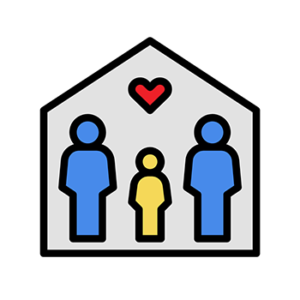Adoption Competent Therapy
 Being a parent is hard work, no matter how your child joined your family. Behaviors are the way that children tell us that something is not right, even if they don’t have the words and/or the will to express this. But as parents, we usually have a sense that something is amiss. So what do we do? We start by asking trusted people in our environment, such as family members, close friends, trusted teachers, and pediatricians for help. We may then get a referral to a mental health clinician. If we are lucky, this person has some understanding of adoption . . . but all too often that is not the case, as it is only recently that there is more recognition of the role of adoption throughout the lifespan, not just as a process for bringing a child into a new family.
Being a parent is hard work, no matter how your child joined your family. Behaviors are the way that children tell us that something is not right, even if they don’t have the words and/or the will to express this. But as parents, we usually have a sense that something is amiss. So what do we do? We start by asking trusted people in our environment, such as family members, close friends, trusted teachers, and pediatricians for help. We may then get a referral to a mental health clinician. If we are lucky, this person has some understanding of adoption . . . but all too often that is not the case, as it is only recently that there is more recognition of the role of adoption throughout the lifespan, not just as a process for bringing a child into a new family.
Therapists trained in adoption competency address the specific needs of adoptive families. We want to promote a positive self-image and sense of security in children as part of a strong and solid family. This family is formed through an initial loss, which can create challenges. It can be hard to sort out what parts of a child’s behavior are normal developmental issues, and what are related to past experiences and the adoption. In addition, many families are very diverse, whether it be racially, culturally, or part of the LGBTQ communities.
It is not easy to acknowledge that you need help, but when you do, you want to know that you can find a professional that is the best fit for your family, based not just on credentials, but on their approach to treatment. It is helpful to know that there are specialists who work with adopted families (adoptive parents, adopted children and adults, birth parents), and even offer consultation to medical professionals and school professionals. There has to be a good “chemistry” between the professional and the client, as well as a flexible approach and the possibility of a long-term relationship. Often in adoption, the therapist may want to have sessions with the parents together with the child to promote stronger attachment.
Thus, it makes sense to take time to ask questions to achieve a belief that the person you introduce your child (or yourself) to will be a good fit. The professional must understand the issues of exposure to loss, trauma, differences, attachment, and be culturally competent and family- and strength-based. When interviewing potential therapists, “trust your gut,” and envision whether you can see your child being comfortable. Don’t be afraid to ask questions or even have a few “trial” meetings to see how it works. Also, remember, even when your child is experiencing some challenges, it does not mean that you did anything wrong.
Written by Dev Olshever, M.Ed., LCSW
[Co-founder, Adoption Associates]
Deb Olshever is a therapist at Adoption Associates, a group of psychotherapists in Newton, Massachusetts that specializes in adoption therapy.